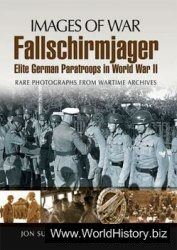It came overnight! In the Reichstag [German Congress] suddenly an unexpected majority had been found among the extreme right and left who had great interest in getting their political prisoners freed. Almost out of nowhere a political amnesty was granted, and along with many others I was freed [on July 14, 1928].
After six years I was free again. The gift of life was given back to me!
Even today I can picture myself standing on the large stairway on the Potsdam railroad station in Berlin and looking with great interest at the milling crowd of people on the Potsdam Square. I must have stood there for a long time until a gentleman spoke to me and asked me where I wanted to go. I must have looked at him and answered him quite stupidly because he quickly ran away. All the hustle and bustle did not seem real to me. I thought I was in a movie theater watching a film. My release had been unexpected and too sudden. Everything seemed so incredible, so strange to me.
I had been invited by telegram to stay with a family in Berlin who were friends of mine. Even though I knew Berlin well, and it was easy to get to their apartment, it nevertheless took me a long time to get there. In the first days of my freedom someone always went with me when I dared to walk on the streets, because I didn’t pay attention to the traffic signs, nor the frenzied, hurrying city traffic. I wandered around as in a dream. It took several days until I accustomed myself to the harsh reality. They really wanted to be good to me. They dragged me to movies, theaters, and to all the places of entertainment, to parties, in short to everything that a city person considers important in his life. All this rained down on me. There was just too much of a good thing. I became totally confused by it all and yearned for peace and quiet. I wanted to escape the noise, the pace, and bustle of the city as quickly as possible and go out to the country. After ten days I left Berlin to start a position as an agricultural civil servant. To be sure, I still had many invitations for visits, but I wanted to work. I had rested long enough.
The families and soldiers who were my friends suggested many different plans and tried to make me happy. All of them wanted to help me make a living and to make my transition to normal life easier. 1 was supposed to go to East Africa, Mexico, Brazil, Paraguay, or the United States. Everything was done with the good intention to get me away from Germany so that 1 would not get involved in the political battles of the extreme right again.
But others, most of all my old comrades, absolutely wanted to see me in the front ranks of the fighting organizations of the NSDAP [National Socialist German Workers Party].* I rejected both ideas. Even though I had been a member of the Party since 1922 and agreed with and was convinced about the aims of the Party, I emphatically rejected the mass propaganda, the pandering for the favor of the masses, the appeal to the lowest mass instincts. Yes, even to the way they expressed themselves. I had become acquainted with “the masses” from 1918 to 1923! Although 1 was inclined to remain a Party member, 1 didn’t want any office, nor did 1 want to join the branch organizations. 1 had other plans. By the same token, I didn’t want to go abroad. 1 wanted to stay in Germany and achieve the farsighted goals of the reconstruction no matter how long it took. I wanted to be a pioneer on the land.
In the long years of seclusion in my cell I became conscious of this: for me, there was only one goal to work and fight for, a farm which I created myself with a large family. This was to be the content of my life, my life’s goal.
I. Hoss joined the Nazi Party in November 1922 and had Nazi Party number 3240. Broszat, p. 51.




 World History
World History









